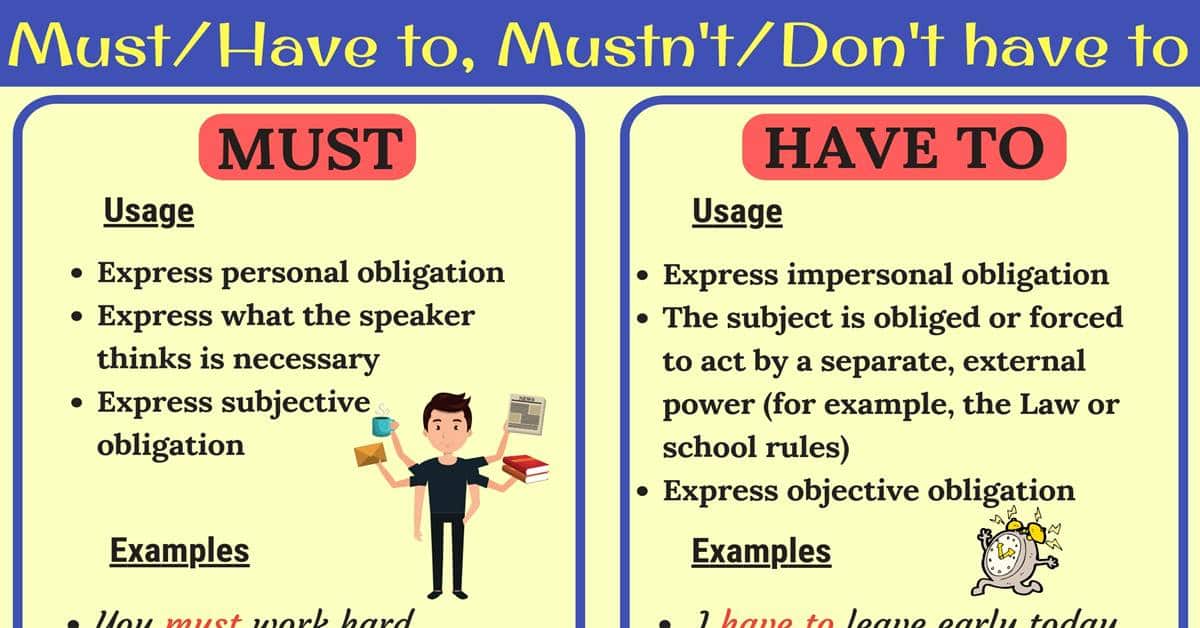Must vs. have to! Learn the differences between these modal verbs: must vs have to, and mustn’t vs don’t/doesn’t have to…
Must vs. Have to
When to Use Must
Meaning:
– Express personal obligation
– Express what the speaker thinks is necessary
– Express subjective obligation
Examples:
You must work hard.
All passengers must wear seat belts.
When to Use Have to
Meaning:
– Express impersonal obligation
– The subject is obliged or forced to act by a separate, external power (for example, the Law or school rules)
– Express objective obligation
Examples:
I have to leave early today.
You will have to pay for the excess.
Mustn’t vs. Don’t/ Doesn’t Have to
When to Use Mustn’t/ Must not
Meaning:
It is prohibited; it is not allowed. It is important that you do NOT do something. The prohibition can be subjective (the speaker’s opinion) or objective.
Examples:
Children mustn’t talk to strangers.
Cars mustn’t park in front of the entrance.
When to Use Don’t/ Doesn’t Have to
Meaning:
There is no obligation; you are not required to do something, especially if you don’t want to.
Examples:
You don’t have to make excuses for her.
You don’t have to whisper, no one can hear us.
Must vs. Have to, Must Not vs. Don’t Have to | Image









0 Comments